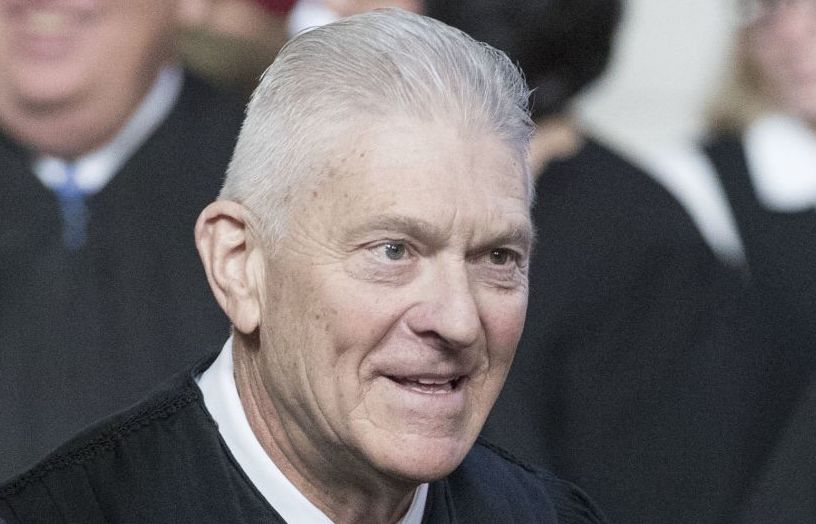LINCOLN — Nebraska Supreme Court Chief Justice Michael Heavican says he knows the public, and one particularly outspoken state senator, are left to fill in the blanks.
But the state’s top judge said he can’t disclose details of the recent resignation of Max Kelch from the high court.
In his first interview since Kelch’s shocking exit, the chief justice did have this to say about the resignation:
“Judge Kelch did the right thing.”
The chief justice also discussed what has been a challenging period for the court even before Kelch’s unscheduled departure. That includes Heavican’s own battle with cancer and a health condition that has required veteran Judge John Wright to take extended time away from the court.
With two of seven chairs on the bench temporarily empty, Heavican said several district court judges have agreed to fill in on the Supreme Court when oral arguments for March begin this week.
In the meantime, two lower-court judges and six attorneys have applied to replace Kelch on the Supreme Court. But the next appointment by Gov. Pete Ricketts likely won’t be sworn in for at least two months.
The World-Herald has reported that Kelch resigned rather than face a recent ethics investigation. In addition, the newspaper found he had a history of making sexual comments to female staffers while he was a judge in Sarpy County.
Kelch has repeatedly declined requests for interviews about the matter.
In the void, State Sen. Ernie Chambers of Omaha has called on Heavican to disclose what led to Kelch’s resignation for the sake of the high court’s reputation and integrity. Last week, Chambers handed a letter to the chief justice saying he also plans to file a grievance seeking Kelch’s disbarment.
Heavican said he read the senator’s letter and forwarded it to the Counsel for Discipline, the division of the Supreme Court that investigates complaints against lawyers.
The chief justice also said the Nebraska Constitution and state law prevent him, or anyone connected to the process, from even acknowledging that a complaint has been filed against any judge.
The initial stages of judicial discipline are shrouded by confidentiality to protect judges from frivolous accusations. Details are made public only when the Judicial Qualifications Commission determines action is warranted against a judge. Disciplinary options start with reprimands and graduate to progressively more serious actions. The commission’s authority over the conduct of a judge ends upon a resignation.
“Ultimately the worst thing that can happen to a judge is a judge is removed,” Heavican said. “And essentially that’s what happened here.”
The 10-member qualifications commission consists of judges, lawyers and laypeople. Heavican, who chairs the commission, said it meets every two months and scrutinizes between 20 and 30 judicial complaints at each meeting. The commission employs a lawyer to carry out investigations of possible violations of the judicial code of conduct.
Most complaints are “completely frivolous,” Heavican said.
In the #MeToo era, the federal courts are now tracking complaints against federal judges. But Heavican offered caution when asked if Nebraska should allow all complaints against judges to become public record.
“What the public needs to understand is there are all kinds of accusations that come in that can be very damaging, not just to individual judges, but to the system as a whole if there’s not some filter up front. And the Judicial Qualifications Commission is that filter,” he said.
The 70-year-old jurist has been the chief justice since his appointment to the court by then-Gov. Dave Heineman in 2006. Prior to that, he had spent nearly all of his legal career as a state and federal prosecutor, including a five-year stint as the U.S. attorney for Nebraska.
In August, Heavican underwent surgery to treat his colon cancer. He also has recently completed chemotherapy, but said he was able to continue working throughout the treatments.
The chief justice said he feels well and has no immediate plans to step down from the court.
Court observers have noted the absence of Wright in recent months. Heavican said his colleague, a member of the court for 24 years, has undergone a major surgical procedure and experienced a setback that has delayed his return. Wright, 72, has asked for privacy as he recovers.
“Both he and the court are optimistic that he’ll be back on the bench,” Heavican said.





















